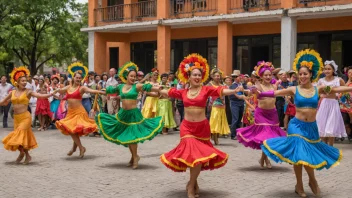Traveling can be an exhilarating experience, but often, tourists find themselves caught in traps that can significantly drain their wallets. Understanding how to navigate these pitfalls can lead to a more fulfilling and budget-friendly adventure. Below, we tackle some common questions about avoiding tourist traps.
What are tourist traps?
Tourist traps are locations, attractions, or activities that are heavily marketed to visitors but often lack real value or authenticity. They typically feature inflated prices, overcrowding, and a lack of genuine local culture.
How can I identify a tourist trap?
Look for the following signs to identify tourist traps:
- Excessive advertising and promotional materials.
- Locations near major tourist attractions or landmarks.
- High prices for food, drinks, or souvenirs.
- Long lines and overcrowding.
What are some alternatives to popular tourist attractions?
Instead of visiting overcrowded tourist spots, consider these alternatives:
- Explore local parks or nature reserves.
- Visit lesser-known museums or cultural sites.
- Join community events or festivals.
- Take a walking tour that focuses on local history and culture.
How can I save money on food while traveling?
Here are some tips to save money on food:
- Eat at local markets or street food stalls instead of touristy restaurants.
- Look for lunch specials or happy hour deals.
- Consider picnicking with groceries from local shops.
- Avoid dining in areas with heavy tourist traffic.
Are guided tours a good option to avoid tourist traps?
Guided tours can be a double-edged sword. While some may lead you to authentic experiences, others can take you to tourist traps. To ensure you're avoiding traps:
- Research the tour company and read reviews.
- Choose smaller, localized tours over larger, commercial ones.
- Ask about the itinerary and destinations beforehand.
What are some budget-friendly ways to explore a city?
Consider these budget-friendly activities:
- Use public transportation or rent a bike.
- Look for free walking tours.
- Visit free attractions such as parks, galleries, and festivals.
- Engage with locals for insider tips on affordable activities.
How can I avoid scams targeted at tourists?
To avoid scams, follow these precautions:
- Research common scams in your destination.
- Be wary of overly friendly strangers who approach you.
- Keep your valuables secure and be cautious of your surroundings.
- Trust your instincts; if something seems too good to be true, it probably is.






